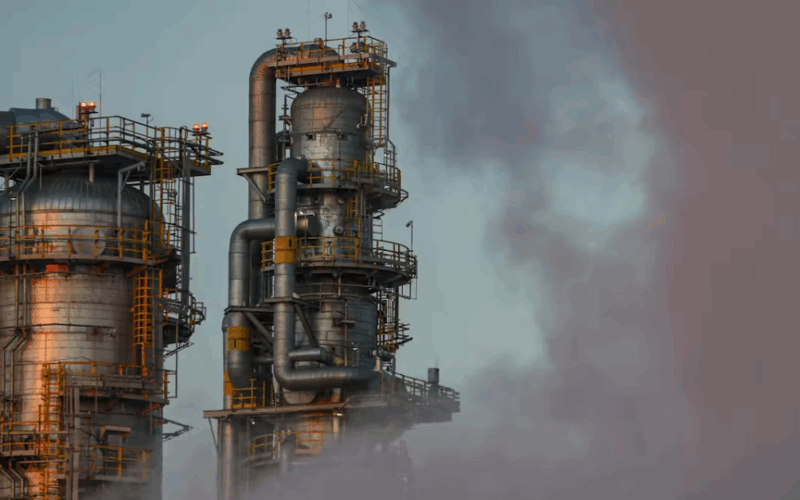The energy, plastics, and chemical manufacturing industries are facing a sharp rise in lawsuits across the globe, and India is no exception. These sectors, critical for economic growth and daily life, are now under intense legal scrutiny due to environmental damages, health risks, and regulatory non-compliance. For many young professionals and consumers, understanding why these industries are targeted is becoming increasingly important.
With greater awareness of climate change and pollution, nonprofits, governments, and citizens are holding companies accountable through legal action. This increase is not just about punishing bad practices but also driving companies toward safer, cleaner methods of operation. The trend highlights a growing shift in public expectations and legal landscapes in countries like India and the US.
Why Are Lawsuits Increasing in These Industries?
The growing number of lawsuits in the energy, plastics, and chemical sectors stems from several factors. One major reason is the environmental impact caused by harmful emissions and waste. Plastic pollution has become a global crisis that threatens ecosystems and human health, leading to legal challenges against producers and manufacturers.
According to a report by the Environmental Protection Agency (EPA), industries contributing heavily to pollution are now under strict regulations. Companies failing to comply with these laws face lawsuits from environmental groups and citizens seeking cleaner practices. Additionally, chemical manufacturing often involves toxic substances that can cause health problems for workers and nearby communities, attracting legal attention.
Impact of Climate Change Litigation
Climate change lawsuits are becoming common tools used by activists and governments to push corporations toward responsibility. Energy companies, especially those involved in fossil fuels, are targeted for their role in greenhouse gas emissions. In India, rising air pollution and its health effects have sparked several legal battles that question the accountability of energy producers.
Reports, such as those from the Climate Change Lawsuit Database, show an upward trend in climate-related suits worldwide. These legal actions demand transparency, reduction in emissions, and compensation for damages caused. This holds true where young people and environmental groups act as petitioners, emphasizing the need for a sustainable future.
Legal Pressure on the Plastics Industry
The plastics industry faces lawsuits mainly due to the massive pollution caused by plastic waste in oceans, rivers, and cities. The slow degradation of plastics causes long-term environmental harm, making manufacturers targets for litigation. Legal cases now focus on pushing companies to develop eco-friendly alternatives and improve recycling efforts.
For example, recent class-action suits in the US and EU have pressured major plastic producers to take responsibility for their products’ end-of-life impact. According to Natural Resources Defense Council (NRDC), these efforts encourage better waste management policies, while consumers also demand more sustainable packaging solutions.
Challenges in Chemical Manufacturing Lawsuits
Chemical manufacturing involves complex processes that can release harmful pollutants if not managed correctly. Workers and local communities sometimes suffer from exposure to hazardous chemicals, leading to health-related lawsuits. These suits can seek compensation and improved safety standards in factories.
Moreover, stricter global regulations and monitoring have forced chemical companies to update their facilities and reduce risks. Lawsuits often arise when companies ignore safety protocols or hide information. This legal pressure helps improve transparency and corporate responsibility in the chemical sector.
What This Means for India’s Future
For India, a country rapidly expanding its industrial base, these lawsuits signal a turning point. While industries like energy and chemicals are vital for development, they must operate sustainably to protect health and the environment. The rise in legal actions encourages Indian companies to adopt greener technologies and comply with stricter regulations.
Young Indians, increasingly aware of environmental issues, play a key role in pushing these changes. As consumers and citizens, they demand accountability, fairness, and clean practices from industries. This evolving legal landscape creates opportunities for innovation and green jobs that align with global environmental goals.
Conclusion: A Call for Responsible Industrial Growth
The surge in lawsuits against the energy, plastics, and chemical manufacturing sectors reflects growing global concern about environmental and health impacts. Legal actions serve as important tools to hold companies accountable and push for sustainable, transparent business practices. For India’s youth and future generations, understanding these changes helps build a more informed and responsible society.
By staying aware and supporting eco-friendly initiatives, individuals can contribute to driving positive change. Industries are slowly adapting, but continuous legal and social pressure will be crucial for ensuring a cleaner and safer environment for all.




